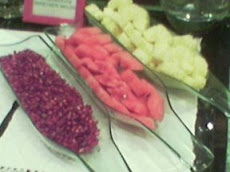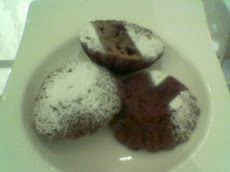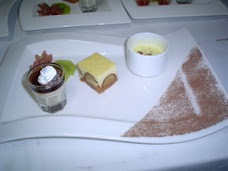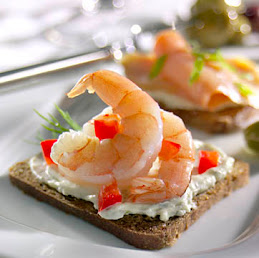What's the difference between tonic water,mineral water, seltzer, carbonated water, and club soda? They all seem like fizzy water alternatives, and they may be identical.
All of these types of fizzy water are indeed quite similar. All of these types, that is, except tonic water. Although its name might lead you to think otherwise, tonic water doesn't taste very "watery" at all. Rather, it has a very strong and distinctively bitter flavor that you'll notice on the very first sip. This bitterness comes from a compound called quinine, which is added to the water base along with some sugar to make a carbonated beverage that happens to be a heavenly match for the juniper-y taste of gin. So, to make a long story short, when mixing yourself a gin and tonic, nothing but tonic water will do.
As for the others waters that are mentioned...
Soda water, seltzer, carbonated water, club soda, sparkling water, mineral water. Names for fizzy water do tend to get tossed around loosely, and almost interchangeably. But there are some important distinctions to keep in mind:

Carbonated Water
"Carbonated water" is a good umbrella term for all the fizzy waters mentioned. Club soda, seltzer, and mineral water all get their effervescence from dissolved carbon dioxide.
"Carbonated water" is a good umbrella term for all the fizzy waters mentioned. Club soda, seltzer, and mineral water all get their effervescence from dissolved carbon dioxide.
Mineral Water
Mineral water is water containing dissolved, naturally-occurring minerals (and sometimes fizz-making carbon dioxide), that is drawn and bottled directly from an underground natural source. These dissolved minerals give the water a subtle flavor, and, some believe, impart important health benefits. There are hundreds of different regional waters available on the international market, each with its own distinct mineral profile. Some of the most famous are Perrier and San Pellegrino (which are both naturally carbonated), and Volvic (which is naturally flat). (Note: in order to be labeled "mineral water," as opposed to "spring water," the water must contain at least 250 parts per million (ppm) naturally occurring dissolved mineral solids.)
Mineral water is water containing dissolved, naturally-occurring minerals (and sometimes fizz-making carbon dioxide), that is drawn and bottled directly from an underground natural source. These dissolved minerals give the water a subtle flavor, and, some believe, impart important health benefits. There are hundreds of different regional waters available on the international market, each with its own distinct mineral profile. Some of the most famous are Perrier and San Pellegrino (which are both naturally carbonated), and Volvic (which is naturally flat). (Note: in order to be labeled "mineral water," as opposed to "spring water," the water must contain at least 250 parts per million (ppm) naturally occurring dissolved mineral solids.)
Uses: Because of its higher price and, well, mineral-y flavor, mineral water is not usually used to make mixed drinks. It is best enjoyed on its own or with a slice of lemon or lime.

Seltzer
Seltzer is plain, unflavored water that has been artificially carbonated. Named after the German town of Niederselters, which is known for its natural springs, seltzer was first marketed in the USA as an affordable domestic alternative to pricey imported mineral waters. Because of the explosive pressure created by the carbonation, seltzer was originally sold in thick glass bottles fitted with metal siphon tops. Since then, siphon bottles have mostly gone by the wayside - although there does seem to be a bit of a recent revival. Modern-day "seltzer" is now commonly sold in ordinary plastic soda bottles.
Seltzer is plain, unflavored water that has been artificially carbonated. Named after the German town of Niederselters, which is known for its natural springs, seltzer was first marketed in the USA as an affordable domestic alternative to pricey imported mineral waters. Because of the explosive pressure created by the carbonation, seltzer was originally sold in thick glass bottles fitted with metal siphon tops. Since then, siphon bottles have mostly gone by the wayside - although there does seem to be a bit of a recent revival. Modern-day "seltzer" is now commonly sold in ordinary plastic soda bottles.

Club Soda
Although it's used almost interchangeably with seltzer, club soda is a slightly different beast. While seltzer is plain carbonated water and nothing but, club soda usually has a few mineral-y ingredients mixed in for added flavor (see the "carbonated water, potassium bicarbonate, potassium sulfate" listed on the label directly above vs. the simple "carbonated water" pictured above that on the seltzer bottle).
Although it's used almost interchangeably with seltzer, club soda is a slightly different beast. While seltzer is plain carbonated water and nothing but, club soda usually has a few mineral-y ingredients mixed in for added flavor (see the "carbonated water, potassium bicarbonate, potassium sulfate" listed on the label directly above vs. the simple "carbonated water" pictured above that on the seltzer bottle).
Uses: Both seltzer and club soda are suitable mixers for highball drinks





















1 comment:
Mineral water is safe for health. Carbonated water is fizzy water. Seltzer water is plane. I drunk Mineral water in my office and home. I work in Car towing service company.
Post a Comment